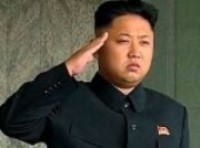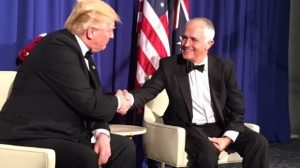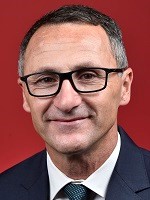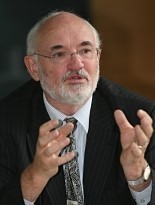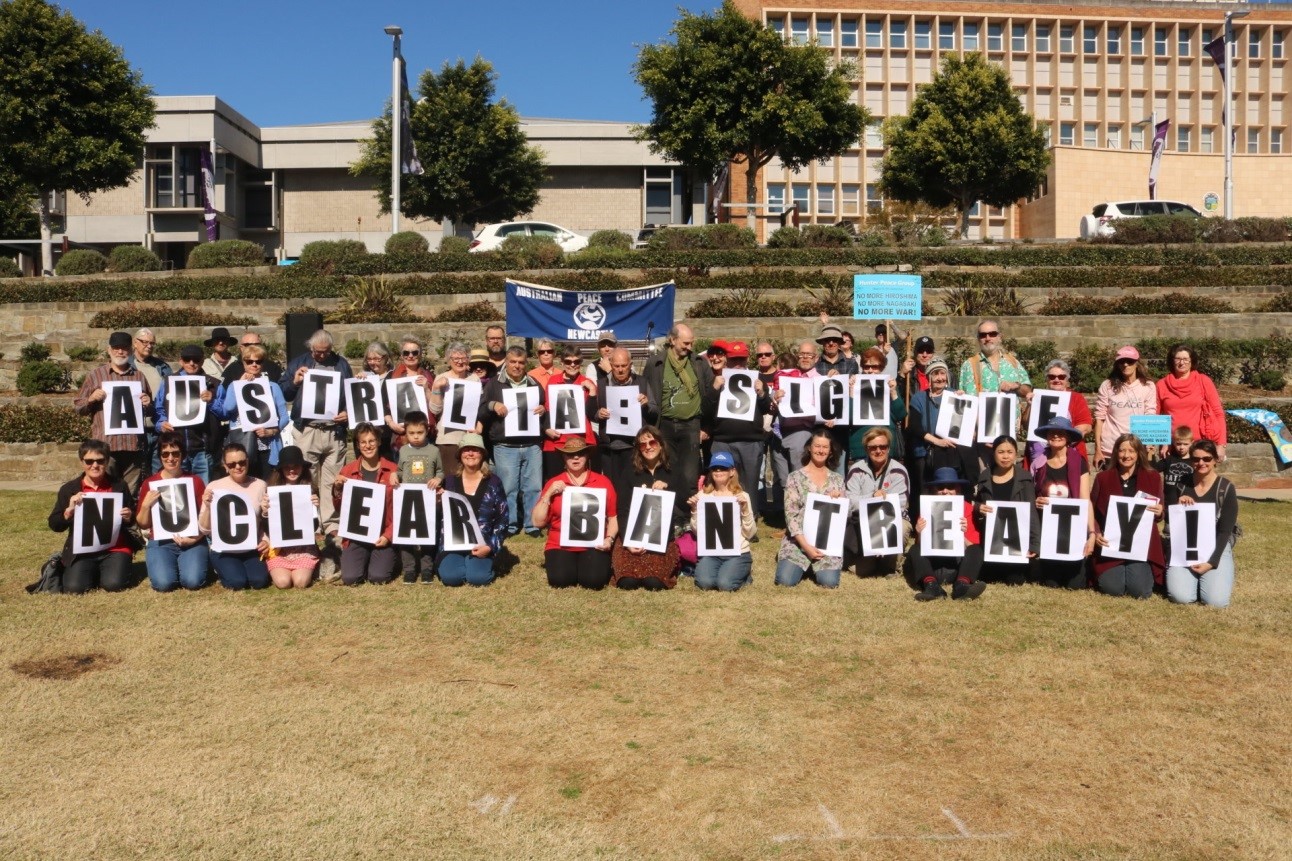In this issue:
- The Korean Crisis: What they are saying…
- An IPAN response
- The North Koreans are not paranoid
- Message from Guam- Lisa Natividad
- Pine Gap hardwires us into a Korean war – IPAN Media Release, 10th August,2017
- IPAN ACT – anti-war protest
- Introducing four speakers at the IPAN War, Peace & Independence Conference-8-10 Sept.
- IPAN Conference details
- Hunter Peace Group statement: Hiroshima Day Rally, 6th August, 2017
- ICAN – Australia must now sign historic UN nuclear weapons ban treaty
- Weapons or Wellbeing Forum – report by Margaret Beavis
The Korean Crisis- what they are saying
Donald Trump: said he would hit the regime with “fire and fury” like the world has never seen if it (the regime) made anymore threats against the USA.
Kim Jong-Un: The Korean People’s Army strategic force is now carefully examining the operational plan for making an enveloping fire at areas around Guam
Chinese state-run Newspapers: If North Korea launches an attack that threatens the US, China will stay neutral but if the Americans attack first and try to overthrow the North Korean Government, China will stop them. The People’s Daily said Beijing was not able to persuade either Washington or Pyongyang to back down.
Malcolm Turnbull: said Australia would invoke the ANZUS treaty if North Korea launched an attack against the Western superpower and come to the aid of the United States. He said Australia and the US were “joined at the hip”
Julie Bishop: said Australia would not automatically be involved under the ANZUS alliance or the Korean War armistice. “In fact we were not a party in the legal sense to the Korean War armistice so there is no automatic trigger for Australia to be involved. As far as the ANZUS alliance is concerned, that is an obligation to consult. But of course we have been in constant discussion with the US.”
She also said that the Nth Korean threats were an “existential threat” to Australia
Bill Shorten: indicated that Labor would not oppose the government’s position and would be prepared to offer bi-partisan support to the government in the event of conflict involving the US.
“I and the government share the same concerns and the same views, and Australians should be reassured that on this matter of North Korea and our national security, the politics of Labor and Liberal are working absolutely together”
Richard De Natale: “Our alliance with the United States is making us less safe, not more, and this war of words with North Korea is the latest and most frightening example. Donald Trump is completely unhinged and his irresponsible rhetoric is putting the entire world in danger,” Di Natale said.” “Prime Minister Malcolm Turnbull’s decision to commit Australian troops to a possible war against North Korea puts Australia at risk and shows why Parliament needs to urgently pass a war powers act and renegotiate the alliance with the United States”, said leader of the Australian Greens Dr Richard Di Natale and Greens Defence Spokesperson Sen. Peter Whish-Wilson
Bob Carr: Former Foreign Minister Bob Carr says Australian politicians should not kid themselves that lecturing China over North Korea “does anyone any good”. Mr Carr told SBS News Australia instead needed to “keep its head down and to talk quietly to the United States and to China about what the options are”.
Paul Keating: He warned that North Korea will never abandon its nuclear weapon program and that this reality will have to be addressed in the same way that the west sought to contain the former Soviet Union. He said his criticism could be extended to Australia’s pledge to enter any potential conflict between the US and North Korea
Peter Leahy, former Army chief: has urged Prime Minister Turnbull to consult parliament before joining the US in a “bloody ugly” war against North Korea. He went on to urge restraint. “We need to do a lot of talking … and play as much as we can behind the scenes to stop this getting out of control.”
Prof Richard Tanter: “Whether we like it or not, Australia would be dragged into a conflict on the Korean Peninsula because of the critical role of Pine Gap in US military operations against North Korea”, says Professor Richard Tanter, senior research associate at the Nautilus Institute and honorary professor in the School of Political and Social Sciences at Melbourne University. “Given the geography of Korea and the decades of military preparations of both sides,” said Tanter, “we could become a participant in a war likely to result in the deaths of hundreds of thousands of Koreans, with a high likelihood of uncontrollable escalation to involve regional conflict.”
CHIEF NT Minister Michael Gunner wants to be assured the Federal Government is looking at everything possible to ensure the Territory is properly protected from possible missile attack by North Korea.
Tony Abbott has joined Kevin Rudd in saying Australia should be urgently investing in upgraded missile defences around high value Northern Territory Defence bases and installations.
Former national security adviser, Andrew Shearer, says North Australian bases and the forces they host will be the first to come under threat
An IPAN Response:
To the leaders of North Korea and the United States:
“Negotiate and de-escalate”
To the North Korean Leadership:
“Cease your threats to fire missiles around Guam”
To the US Leadership:
“Reduce the military threat perceived by North Korea, by ceasing US Bomber flights over the Korean peninsula, cease the US/Sth Korean large scale military exercises and reduce the heavy military concentrations near North Korea by commencing the dismantling of US bases and reduction in the heavy naval presence in the region.”
To the international community including the US:
“Remove the economic sanctions on North Korea, accept its legitimacy as a nation and its right to develop its own self defence and seek to integrate North Korea into the international economic community”.
To Malcom Turnbull;
“Supporting the US to the hilt – reflects an appalling lack of judgement about the risks of nuclear war and potentially endangers millions of lives including Australian’s. Australia should adopt a non-aligned policy at this stage and not use an invalid reading of the ANZUS Treaty to automatically assure the US of Australia’s support in a war with North Korea.
Furthermore, the US military bases on our soil including Pine Gap integrate Australia into the US war machine and lock us into wars that are prosecuted by the US. These bases deny Australia our sovereignty and our freedom to make foreign policy decisions independently of the US; they must be addressed urgently if Australia is to be able to pursue independent and peaceful relations with our neighbours and the international community.”
The Nth Koreans are not paranoid
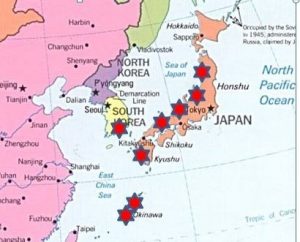 Today North Korea is confronted by a string of US bases in Okinawa, Japan and South Korea from which large -scale war exercises are regularly conducted
Today North Korea is confronted by a string of US bases in Okinawa, Japan and South Korea from which large -scale war exercises are regularly conducted
A mass display of U.S. air and sea power is already in the region- three aircraft carrier groups with accompanying destroyers and cruisers.
From the Anderson Air Force base on Guam US nuclear-capable bombers regularly overfly the Korean Peninsula
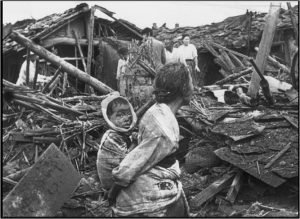 The Nth Koreans have not forgotten the devastating impact of the U.S. war on Nth Korea in the early 1950’s. That was never officially ended. No Treaty was signed ending the war, only a ceasefire agreed to and a de-militarized Zone established separating the north from the south. Technically the U.S. and Nth Korea are still at war.
The Nth Koreans have not forgotten the devastating impact of the U.S. war on Nth Korea in the early 1950’s. That was never officially ended. No Treaty was signed ending the war, only a ceasefire agreed to and a de-militarized Zone established separating the north from the south. Technically the U.S. and Nth Korea are still at war.
The U.S. maintained an army presence in Sth Korea ever since and has currently 28,500 troops there plus other military bases and the THAAD anti-missile system which the Sth Koreans are now protesting to have removed. North Korea was devastated by the U.S. incendiary bombing in the 1950’s war; cities were flattened and a significant portion of the population were forced to live underground in tunnels, holes in the ground, caves or in the mountains to survive. Historians estimate 3 million Koreans were killed in that war or which 1.5 million were civilians.
Curtis LeMay , the US Air Force General in command of the bombing campaign, said. “We went over there and fought the war and eventually burned down every town in North Korea anyway, some way or another, and some in South Korea too….Over a period of three years or so, we killed off – what – twenty percent of the population of Korea as direct casualties of war or from starvation and exposure?” Senior US official Dean Rusk said the US bombed “everything that moved in North Korea, every brick standing on top of another”. When the US ran out of cities to bomb, they destroyed dams, drowning villages and flooding croplands. Following the end of the fighting, the US imposed crippling economic sanctions on North Korea which continue to this day and have recently been tightened.
Nth Koreans remember George W Bush identifying the “axis of evil” to be destroyed:
Libya, Syria, Iraq, Iran and North Korea. They are mindful of what has already happened to Col Gadaffi and Libya, Saddam Hussain and Iraq and what they currently trying to do to President Assad and Syria. They have built up a highly militarized state to defend their country and have developed missiles possibly with nuclear warheads as part of that defence.
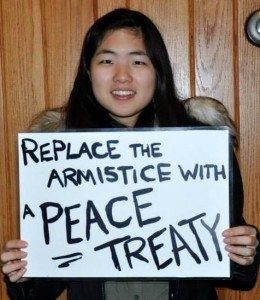 North Korea has repeatedly stated its desire to conclude a peace treaty and a non-aggression pact with the US as a precondition to ending its nuclear program and has stated that it will use its weapons only if attacked or intolerably provoked. In 1994 North Korea and the Clinton administration signed the “Agreed Framework” agreement, under the terms of which North Korea would cease its nuclear weapons program. However, this agreement was sabotaged by powerful elements in the US, and collapsed in 2003 when President G W Bush included North Korea in his “axis of evil”.
North Korea has repeatedly stated its desire to conclude a peace treaty and a non-aggression pact with the US as a precondition to ending its nuclear program and has stated that it will use its weapons only if attacked or intolerably provoked. In 1994 North Korea and the Clinton administration signed the “Agreed Framework” agreement, under the terms of which North Korea would cease its nuclear weapons program. However, this agreement was sabotaged by powerful elements in the US, and collapsed in 2003 when President G W Bush included North Korea in his “axis of evil”.
Article by Andrew Fullarton & Bevan Ramsden
Message from Guam- Lisa Natividad
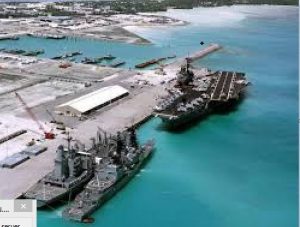 Dear brothers and sisters in the Australian Anti-bases and peace movement,
Dear brothers and sisters in the Australian Anti-bases and peace movement,
You all in Australia have consistently demonstrated your commitment to our issues on Guahan. We are grateful for your support and solidarity while we live in the very real threat of a nuclear attack by North Korea.
As peace activists on Guahan, we stand in solidarity with the people of North Korea who have suffered greatly from the interference of the United States in their affairs. Having visited North Korea in 2015 as part of the group Women Cross DMZ, I have come to understand that the North Korean people are a brokenhearted people who long for a peace treaty across their Korean peninsula and who desire to be reunited with their loved ones living in the south. We evoke the governments of the United States and North Korea to utilize channels of diplomacy and consultation to work towards a resolution to these issues of conflict.
IPAN MediaRelease 10th August 2017
Pine Gap hardwires Australia into a Korean war
“Whether we like it or not, Australia would be dragged into a conflict on the Korean Peninsula because of the critical role of Pine Gap in US military operations against North Korea”, says Professor Richard Tanter, senior research associate at the Nautilus Institute and honorary professor in the School of Political and Social Sciences at Melbourne University.
“Given the geography of Korea and the decades of military preparations of both sides,” said Tanter, “we could become a participant in a war likely to result in the deaths of hundreds of thousands of Koreans, with a high likelihood of uncontrollable escalation to involve regional conflict.”
“Informed commentators recognize that there is no military solution to this conflict, and talking is the only option to avoid unimaginable horror,” said Professor Tanter. “Difficult though it is to negotiate with North Korea, there is good reason to believe that its leaders are not bent on suicide. There are indications that negotiations could be possible, but they need to be genuine to have any chance of avoiding war.”
“The Australian government’s strategic response has for a long time been compliance with whatever constitutes United States policy of the day. In the hands of President Trump, this places the future of both the Korean Peninsula and Australia in the hands of a deeply delusional narcissist who is incapable of comprehending the consequences of his actions.”
“The Joint Defence Facility Pine Gap will play a critical role in both conventional and nuclear-armed U.S. attacks on North Korea”, said Professor Tanter. “Pine Gap hardwires Australia into US combat operations in Northeast Asia. Pine Gap’s tasking will now be very actively focussed on North Korea.”
“The logic of nuclear weapons, epitomized by the United States’ nuclear posture, and fully supported by compliant Australian governments, has led to North Korea’s successful path to nuclear weapons state status. Its goal has clearly been to deter U.S. from attempting regime change, rather than suicidal nuclear aggression.”
“It is time for Australia to take an independent stance urging the utmost caution on its nuclear-armed ally as well as on North Korea, and actively oppose any action leading to what would be a catastrophic outbreak of war.
“But equally, the present crisis makes clear that doctrines of nuclear deterrence – by any country – hold the whole world to ransom, with deterrence failure inevitable in the long run. It is clear that only the abolition of nuclear weapons will offer any chance of planetary safety. The Australian government’s craven acceptance of US demands that its allies boycott the treaty to prohibit nuclear weapons adopted at the United Nations indicates that we have no independent foreign policy.”
Professor Tanter will address the issue ‘What would an independent Australian foreign policy look like?’ during the upcoming Independent and Peaceful Australia Network National Conference in Melbourne over the weekend of 8-10th September.
For Media Interviews: Contact Richard Tanter 0407824336
IPAN Media Liaison: Kathryn Kelly, contact 0417 269 984
IPAN ACT anti-war protest- Canberra 16th August
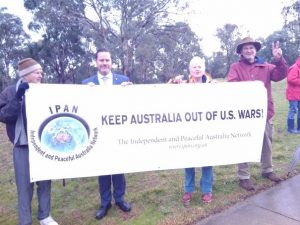
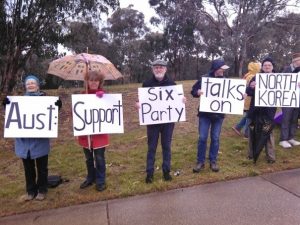
On 16th August, IPAN ACT, along with other concerned individuals gathered on the Melbourne Ave entrance to parliament house to show the MPs that we are opposed to the Australian government’s belligerent stance on North Korea.
There were around 30 people there, including Senator Peter Whish-Wilson, Alex White, Secretary of Unions ACT, and members of IPAN, the Medical Association for the Prevention of War, the International Campaign against nuclear weapons (ICAN), the Quakers, and the Uniting church social justice committee, as well as other individuals.
Our placards and banner said ‘Australia: support the Six-Party talks on North Korea’, “Keep Australia out of US Wars”,’ ‘ICAN’, ‘Medical Association for the Prevention of War’ and ‘Military action? Parliament should decide’.
Introducing four speakers for IPAN’s War, Peace & Independence Conference
Margaret Beavis: President of Medical Association for Prevention of War recently spoke about the ethics of weapons manufacturers. Pope Francis calls them the “Merchants of Death” while Tim Costello describes Australia’s push to become a major weapons exporter as “Exporting death and profiteering from bloodshed”. She said:”Lockheed Martin spent $18.6 million on lobbying and political donations in 2015 alone. In Australia our political donation laws are very opaque, both at state and federal level. Less than a quarter of donations to the ALP and the Coalition in the 2016 election were clearly attributed.”
Prof. Richard Tanter : Extract from recent press release
“Whether we like it or not, Australia would be dragged into a conflict on the Korean Peninsula because of the critical role of Pine Gap in US military operations against North Korea”, says Professor Richard Tanter, senior research associate at the Nautilus Institute and honorary professor in the School of Political and Social Sciences at Melbourne University.
“Given the geography of Korea and the decades of military preparations of both sides,” said Tanter, “we could become a participant in a war likely to result in the deaths of hundreds of thousands of Koreans, with a high likelihood of uncontrollable escalation to involve regional conflict.”
Senator Peter Whish-Wilson: Extract from The Greens Press release
“Prime Minister Malcolm Turnbull’s decision to commit Australian troops to a possible war against North Korea puts Australia at risk and shows why Parliament needs to urgently pass a war powers act and renegotiate the alliance with the United States, said leader of the Australian Greens Dr Richard Di Natale and Greens Defence Spokesperson Sen. Peter Whish-Wilson.”
Alex Edney-Browne:
“US coalition governments and militaries tell the public that drones are an accurate weapon that reduce harm to civilians and to military personnel, allowing for the most “ethical” conduct of war. Alex Edney-Browne will be speaking about her interviews with Afghan drone victims and former US Air Force drone personnel, arguing that drone warfare is inaccurate and inflicts a wide-range of psycho-social harms”.
For Conference Bookings:
IPAN Conference details
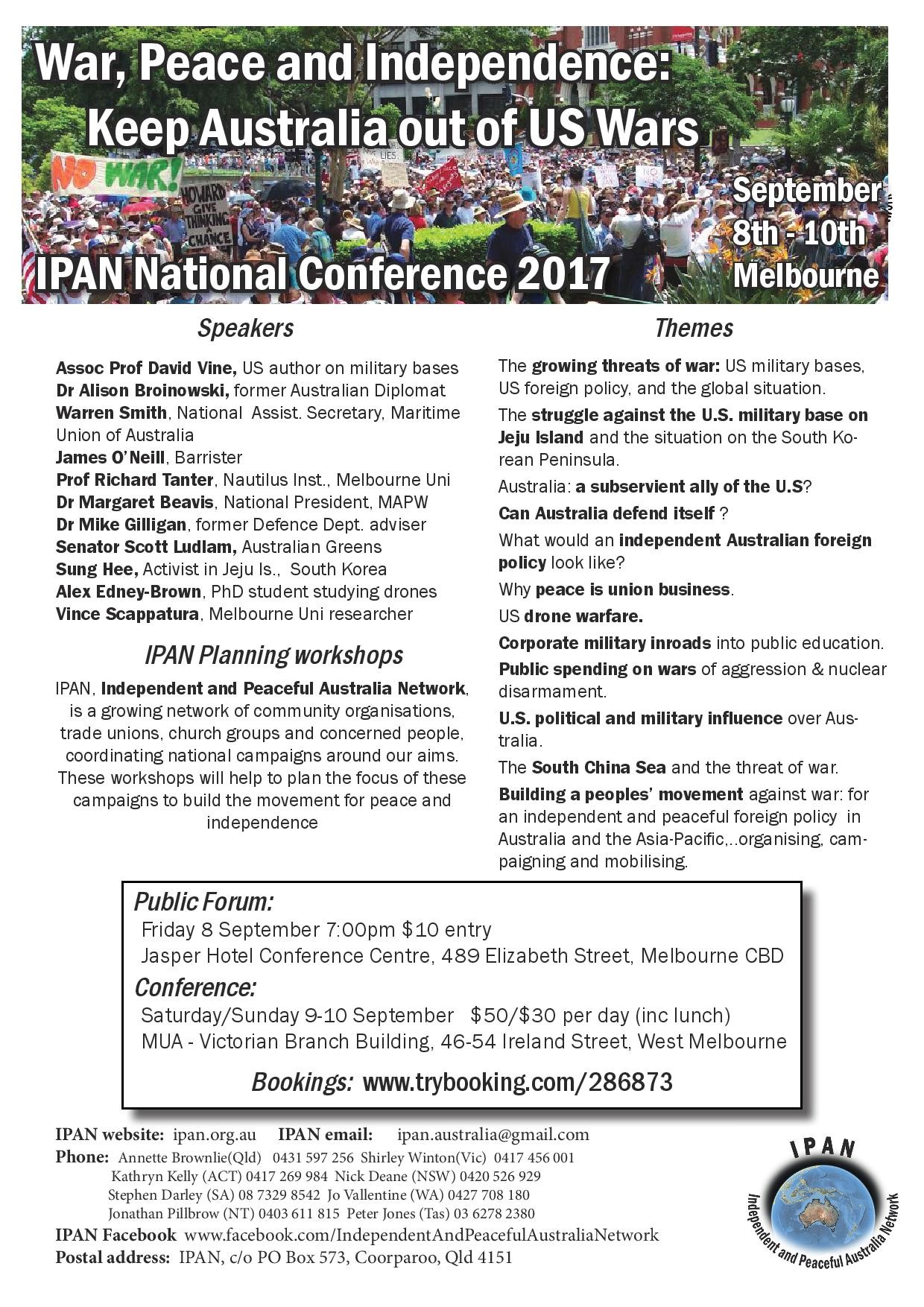
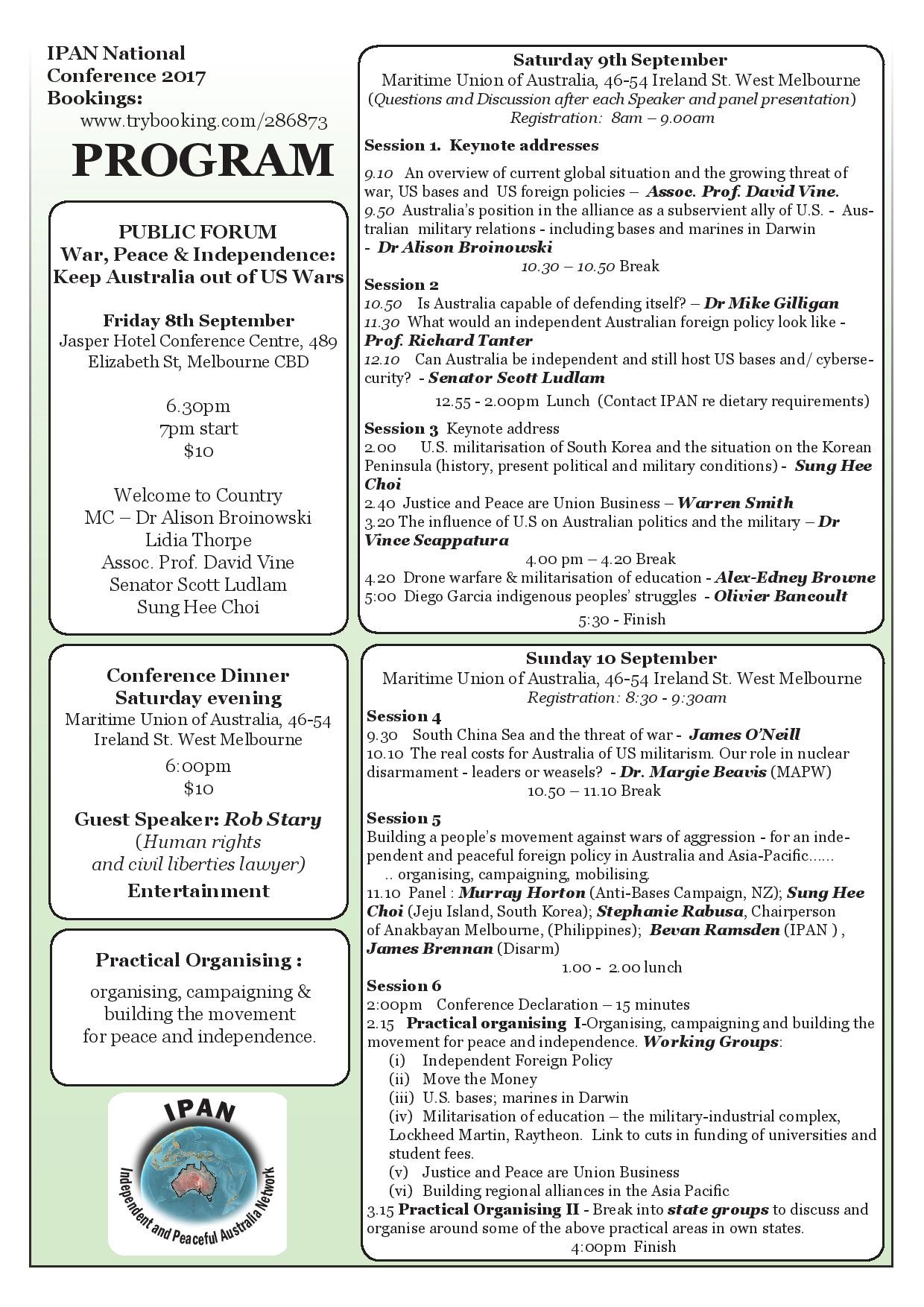
Hunter Peace Group’s statement at Hiroshima Day Rally, Civic Park Newcastle, 6th August, 2017
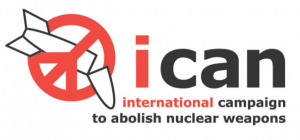 Australia must now sign historic UN nuclear weapons ban treaty
Australia must now sign historic UN nuclear weapons ban treaty
Australia must sign up to the historic United Nations nuclear weapons ban treaty that was adopted in New York at the weekend of 7th July,2017.
“Australia should have been at the forefront of global efforts to outlaw and eliminate nuclear weapons – not clinging onto the misguided belief that we are protected by these weapons of mass destruction,” said Tim Wright, Asia-Pacific director of ICAN, who attended the UN talks.
The North Korean nuclear missile crisis that erupted during the final days of the UN negotiations only underlines the need to rid the world of nuclear weapons.eliminate nuclear weapons – not clinging onto the misguided belief that we are protected by these weapons of mass destruction,” said Tim Wright, Asia-Pacific director of ICAN, who attended the UN talks.
Recent polling showed that 74 per cent of Australians wanted the government to participate in the treaty negotiations, which were supported by nearly every other country in South East Asia and the Pacific, including New Zealand.
In March, the Senate passed a motion urging the government “to participate constructively” in the process. Labor and the Greens have voiced support for the ban, describing it as an urgent humanitarian imperative.
Extract from ICAN Media release: 10th July, 2017
——————————————————————————————————————————-
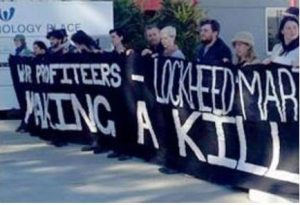 Weapons or Wellbeing?
Weapons or Wellbeing?
was the title of a forum recently held to discuss Melbourne University’s collaboration with Lockheed Martin, the world’s biggest weapons manufacturer. “Weapons or Wellbeing” was organised by the student branch of MAPW (the Medical Association for Prevention of War).
Margaret Beavis, President of the Medical Association for Prevention of War reports on the meeting as follows:
Last month a forum was held to discuss Melbourne University’s collaboration with Lockheed Martin, the world’s biggest weapons manufacturer. “Weapons or Wellbeing” was put on by the student branch of MAPW (the Medical Association for Prevention of War). On the panel I was joined by Professor Ricard Tanter, from the Nautilus Institute and Alex Adney-Brown, a PhD student studying the lived experience of drone attacks.

